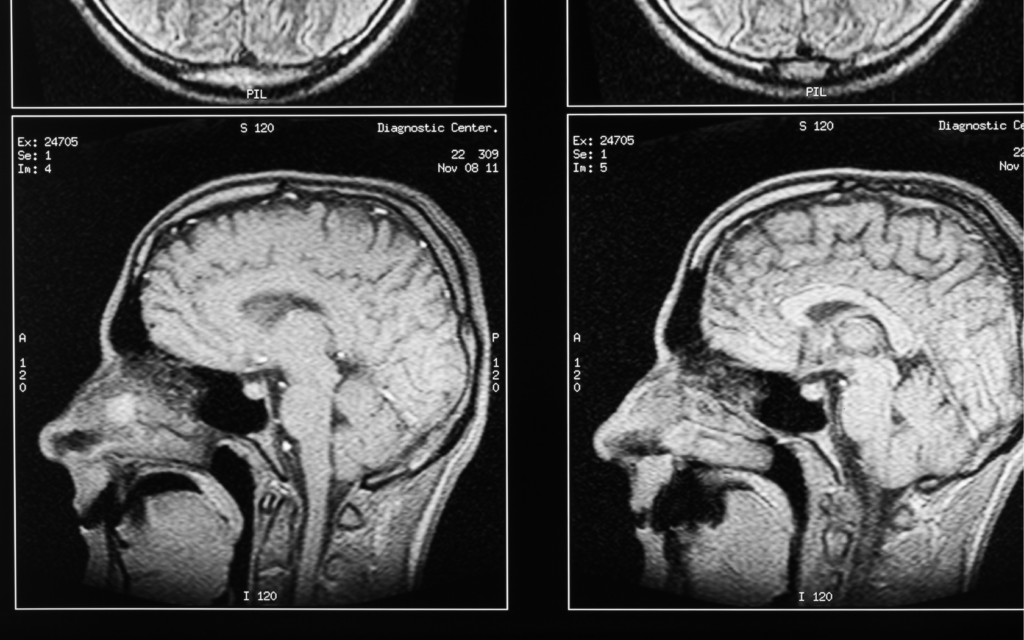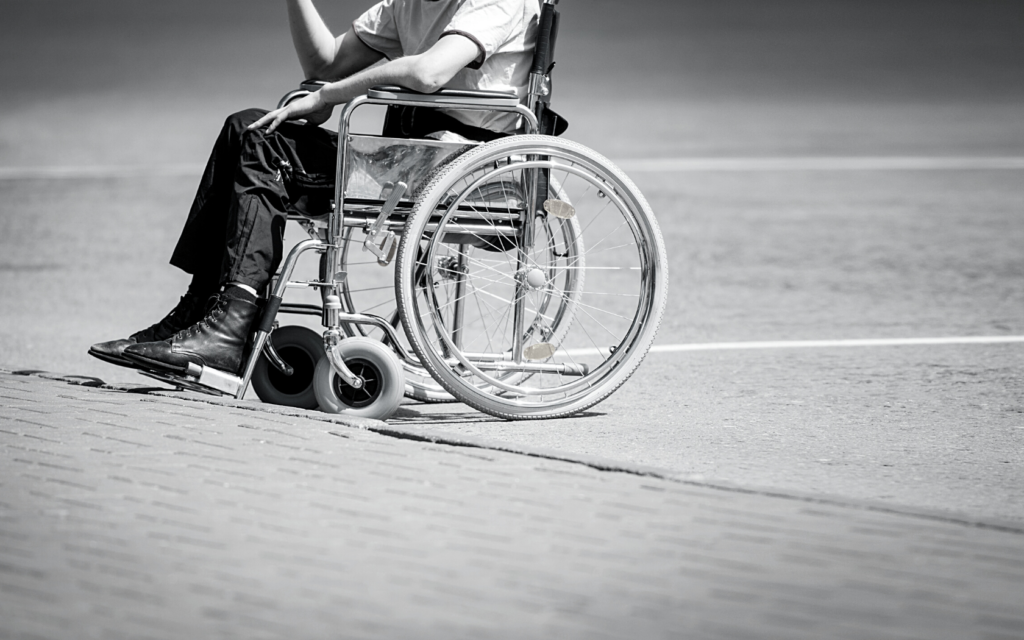The brain is responsible for handling our thoughts, movements, memories, imagination, and emotions, among countless other things. You know, all of the characteristics that help define us as unique human beings.
Being the epicenter of operations, it’s easy to see why the brain is sometimes referred to as the “Crown Jewel” of the body. Because the brain really is that important. And that brings us to the point of this article, which is to discuss traumatic brain injuries that occur because of medical malpractice and negligence.
Did you realize that medical malpractice is the third leading cause of death in the United States? With 2.8 million Americans suffering a brain injury each year, it makes you wonder how many occur within a hospital setting.
In this blog post we’ll discuss what a traumatic brain injury is, why it happens within hospitals, and what to do about it if you’re looking to pursue a brain injury claim. Keep reading to learn more!

What Is A Brain Injury?
More often than not you’ll hear one of these two terms when a medical professional refers to a brain injury. The two terms are:
► Traumatic Brain injury (TBI)
► Acquired Brain Injury (ABI)
With a TBI the brain injury likely is the result of a significant blow to the head or a traumatic injury. This type of injury usually happens because of a fall, auto accident, physical assault, or sports injury, among other incidences.
An ABI in comparison, is an all-inclusive term that encompasses any injury to the brain after birth.
But how do brain injuries occur in a medical setting? Follow along as we’ll be sure to answer that question in the the next section.
Brain Injuries In Medical Facilities
As is the case with most invasive surgeries, a patient will need to be “put under” while the surgery or procedure takes place. This is common knowledge so most patients won’t have any issue with. But what most patients don’t understand is the risk of anesthesia, oxygen, or infection errors. Here are three of the most reasons a traumatic brain injury may occur in a hospital setting:
Anesthesia Errors: Victims of anesthesia miscalculation may experience brain damage, asphyxia, birth defects, stroke, or even death. Administering anesthesia and monitoring patients is a huge responsibility, and it can never be taken lightly.
Sepsis: Sepsis is a disease that’s generally contracted at hospitals. The most common cause of Sepsis is bacteria entering the body through a catheter or surgical site. A lot of times, the infection can be traced to unsanitary conditions in the hospital. Sepsis also occurs in nursing homes when bedsores that aren’t tended to develop and fester. Unfortunately, Sepsis can quickly cause organ failure, including the brain.
Lack of Oxygen: Preventable medical errors can include instances of oxygen deprivation. Diminished oxygen supply to the brain can cause impairments in several carnal functions, impacting your cognitive, physical, and psychological capabilities. Within minutes of the oxygen supply being cut off, damage begins to occur as sensitive brain cells begin to die off. A continued lack of oxygen can cause seizures, coma, and brain death in the patient.
Here are a few other reasons a traumatic brain injury may occur:
- Failing to timely diagnose conditions such as strokes, heart attacks, a pulmonary embolism, or aneurysm.
- Excessive bleeding during a procedure resulting in decreased oxygenation.
- Missing a brain bleed.
- Abuse (a common cause of injury in nursing homes)
- Birth trauma (causing injury to newborn babies)
- Medication errors (incorrect dosage, or incorrect medications)
Patient/Doctor trust is a complicated, multidimensional construct. Many impart their absolute trust in their physician, because they’re the expert. Most patients do this without any prior knowledge of success rate or competence. But maybe it’s time to start asking more questions.

A Story Of Medical Malpractice
Steven Olsen is a brain injury survivor, but unfortunately he’s also blind and brain-damaged. While hiking with his family, at the age of two, he fell on a stick.
Under the family’s managed care plan, the hospital pumped Steven with a slew of steroids and sent him home. Steven’s parents requested a CAT scan because they knew Steven wasn’t well but they’d didn’t get their wish. The following day Steven came back to the hospital comatose. The reason? A growing brain abscess.
At trial, medical experts testified that had Steven had the CAT scan, further damage could have been prevented. The scan would have detected the brain abscess and it’s possible Steven wouldn’t have lost his eyesight and may not have developed cerebral palsy.
Like a brain abscess, certain diseases can cause brain damage on their own, but without proper attention things quickly worsen. Here are a few other conditions that can also result in brain damage:
- Abscesses
- Cerebral cysticercosis
- Encephalitis
- Meningitis
- Mumps
- Myelitis
- Toxoplasmosis
- Trichinosis
- Rubella
- Rabies
This is yet another reason that receiving a correct and prompt diagnosis is vital. If you or your loved one is a victim of brain damage within a medical setting, contact our office. Together with a brain damage lawyer you can pursue a brain injury claim.
What To Look For If You Suspect Brain Damage
Brain damage can come in many forms. Here’s an outline of what to look for if you suspect brain damage in a loved one or even yourself:
Thinking – A person with brain injury may struggle with memory and reasoning.
Sensation – Brain damage may cause a person to struggle with balance, vision, and hearing.
Communication – A brain injury victim may be unable to talk with others or process language.
Emotions – Many people with brain injury suffer from depression and/or behavioral issues, including acting out or engaging inappropriately with others.

Do You Have A Brain Injury Claim?
Some brain injury victims who experience cognitive impairments have issues returning to work. In a medical negligence case, a plaintiff may seek compensation for future lost income, as well as physical therapy, long-term care, medication, and more.
What To Expect With Brain Damage Lawsuits:
To have a successful brain injury claim, you’re going to need to show the following:
- Proof that a doctor-patient relationship existed.
- The testimony of an expert witness. Normally this will come from another medical professional. (We’re proud to have our very own physician on staff who helps with these matters.
- Evidence that your health care provider failed to meet the standard of care.
- Considerable damages that you’re claiming. Even intangible claims such as “Pain & Suffering” may count.
The exact standard of care is very fact-dependent and individual to your case. For example, if your doctor failed to diagnose a blood clot that later led to your brain injury, this may or may not be medical malpractice. A lot depends on how obvious and typical your symptoms were or were not. It may also depend on the level of expertise possessed by your doctor. For instance, a neurosurgeon would be held to a higher standard of care, opposed to that of a general practitioner. But that doesn’t mean your PCP can’t be held responsible if they’re at fault.
Don’t Hesitate To Contact One Of Our Brain Damage Lawyers
If you or a loved one has suffered a brain injury you believe may have been caused or exacerbated by medical malpractice, contact us. Now isn’t the time to sit on one’s hands. The sooner you begin pursuing your brain injury claim, the better your chances will be. A brain injury lawyer will look into the details of situation and determine whether or not there’s a case. Remember, you don’t have to carry the burden alone, let someone fight for you.
Brain Injury Lawsuit Timeline: When Do I File?
Most states have a two-year statute of limitations. This is the maximum time after an event, where legal proceedings can be initiated. Your lawsuit timer starts from the time you discover you’re a victim of physician or hospital negligence. The financial ramifications of a serious brain injury are generally long-term in duration.
Moreover, a brain injury survivor may experience secondary medical problems, such as infections that need extra medical treatment. This is why it’s so important to assess all future compensation. To increase your chances of bringing a successful brain damage lawsuit, it’s important to have the help of a skilled brain damage lawyer.
Here at Hampton & King, we vow to pursue every dime of compensation you’re entitled to. If you believe you or your immediate family member might have a brain injury caused by a medical error. Contact our office to request your free, no-obligation case consultation.




